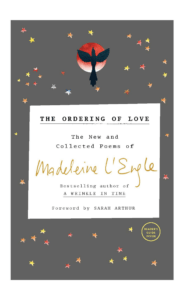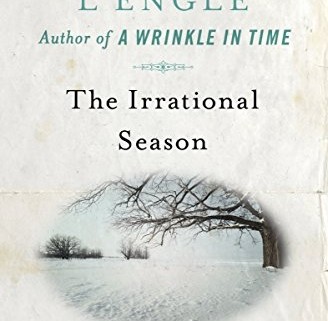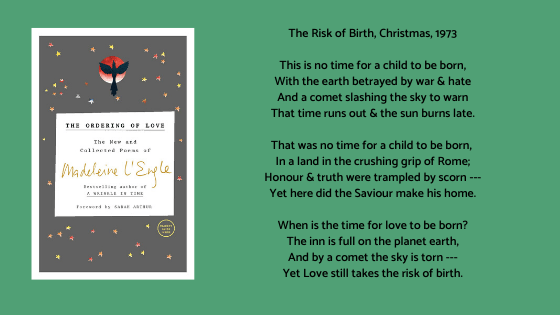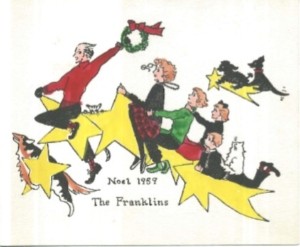Earlier this week I relished a custard-filled pączki, just on time. You can set your watches to these Polish fried dough things showing up in Midwestern convenience stores, just in time for Fat Tuesday. By Wednesday they’ll grow stale (and half price!). See, Wednesday (Feb. 26) marks the beginning of Lent.
Lent is the 40 days (minus Sundays) before Easter, when some Christian traditions generally prepare themselves for Holy Week and Easter. As you might guess, Lent’s a lot less fun than prepping for Christmas. As someone who attended an Episcopal church, Madeleine recognized the timbre of the church’s calendar year. She writes about this in the third Crosswicks Journal book, The Irrational Season, the audiobook that I’m listening to now.
Serendipitously I’ve landed in the book’s chapter on Lent, which Madeleine aptly calls a “strange bleak season.”
(And aren’t her February feels right on point: “How right the Romans were to make it the shortest month of the year.” And March? Don’t get us started.)
It’s traditional to give up some vice or comfort during Lent, maybe chocolate or that glass of wine after dinner. But Madeleine, I think, lands on something more true about this season. Instead of giving up petty, favorite things, she thinks about the demands made on her, “that I’m not sure I want made.” She goes into the Beatitudes, sweeping from the meaning of the word “blessed” to the kind of God who’d think up a thing like Easter. And though I want to rush ahead to the marshmallow bunnies part of Easter, Madeleine teaches us readers not to miss what has to come first.
“Here the world’s in the worst mess we’ve been in for generations, and we no longer get down on our knees and say, I’m sorry. Help! … the Confession must come before we can rejoice.”
(The timeliness of her words … what is that quote? “A classic is a book that has never finished saying what it has to say.” Yes, that.)
 Another to consider: her poem “For Lent, 1966.” You can read her poem in its entirety in the newly re-released book of poetry, The Ordering of Love, but the first two lines capture that idea of doing Lent differently:
Another to consider: her poem “For Lent, 1966.” You can read her poem in its entirety in the newly re-released book of poetry, The Ordering of Love, but the first two lines capture that idea of doing Lent differently:
“It is my Lent to break my Lent,
To eat when I would fast …”
Do you observe Lent? What are your favorite poems or books for this strange season? Share them in the comments!
Tesser well, even in the longest of Februaries,
Erin F. Wasinger, for MadeleineLEngle.com.



